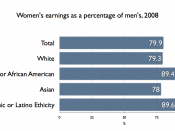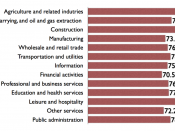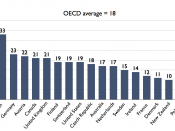�
"Pay inequality is neither inequitable nor inefficient."
Pay majorly impacts on employee attitudes and behaviours. Therefore pay can be a powerful tool from an employer's point of view as it allows them to further their organisation's goals. However, pay inequality is inequitable and inefficient. There are two dimensions of pay inequality; horizontal inequality refers to the 'differences in rates of pay for the same or similar jobs at the same level in the organisational hierarchy' for example the gender pay gap; vertical inequality refers to the 'difference in pay level between jobs at different levels in the organisational hierarchy' for example the pay gap between executive positions and employees. These dimensions of pay inequality lead employees to make comparisons between what they receive and what they perceive others within the organisation receive. These comparisons effect employee cooperation, productivity and attitudes, in turn creating negative consequences for the organisation thus indicating that pay inequality is inequitable and inefficient.
Overall pay inequity enlarges the gender pay gap, disperses pay structure, and increases instability in the workplace.
The 'gender pay gap' indicates that women are being treated unfairly, as women are not paid the same amount of pay for the same, similar or equal-value jobs as men. The trend of the gender gap is increasing recently (Richards, 2010). According to the pay equality report 'Making it Fair', the average industry gender pay gap is around 17 per cent within some industries while some sectors are even higher, in particular finance and insurance at 31.9 per cent of the gender pay gap (Richards, 2010). There are several reasons for the increasing gender pay gap; firstly women seem to have less bargaining power and have not fared in enterprise bargaining or individual contracts at the workplace level (Richards, 2010). Secondly, the advancement of decentralization...


